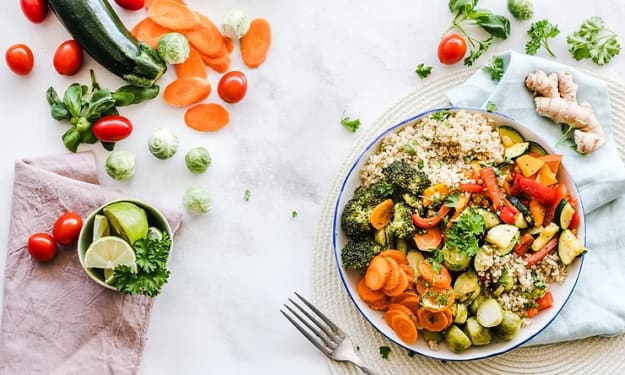How to Pick a Good Vitamin C Supplement
Hint: It's Not Just Ascorbic Acid

Vitamin C is an essential part of a wholesome diet and a comprehensive nutrition program. Although it is one of the few nutrients that can actually be obtained in the diet consistently, the reality is that therapeutic doses of vitamin C are often required in a variety of conditions. These may include healing from injury, dealing with an infection, recovering from stress or taking iodine for optimal health.
(For a comprehensive article on why supplementation is necessary in today’s world, and how to do it safely and correctly, you can always go here.)
So in these cases the demand for vitamin C (and other nutrients) may skyrocket, making it difficult to obtain what you need from diet and quite impractical. Oranges and orange juice (if organic and with pulp) are a classic source of vitamin C, but eating more than 2 or 3 oranges a day can give you diarrhea and may affect your teeth negatively because of the acid. I remember many years ago when I had surgery, I was taking a wholefood vitamin C product and testing my baseline using a urine reagent test to keep it steady. I knew my baseline before going into the surgery, and I snuck some of the vitamin C tablets with me into the hospital. For several days I took over 500% of the RDI of vitamin C (about 3–4 small oranges) per day, and after I was released I tested my baseline again.
Before I give you the results, I need to explain how these tests work. Basically you pee into a cup and then, using a dropper, place drops of this solution one at a time until the color of the urine changes. The more drops, the less vitamin C you have, because the solution reacts with vitamin C in your urine. Prior to the surgery I was at just a few drops, and despite taking all that vitamin C — what do you guess I was at after a few days of recovery? The answer is over 20 drops. It was nuts, and it was proof to me that the body’s demand for nutrients goes way up when there is healing to do. Especially if you have had surgery or a serious injury, this demand can be astronomically higher than what the RDI tells you is normal or good.
So, how do you pick a good vitamin C supplement?
The answer is you find a wholefood version of this supplement. “Wholefood” just means it is made from a food source rather than synthesized some way. This isn’t necessarily needed for every vitamin, but in the case of vitamin C you want to get a whole food version. Usually this is in the form of powdered acerola cherries, since they are extremely high in vitamin C.
The reason you want to opt for a whole food version that is freeze dried and dehydrated into powder is because vitamin C that is cheap is synthesized using hydrochloric acid and corn syrup. This forms ascorbic acid, which is a component of vitamin C, but ascorbic acid by itself is not that useful. Ascorbic acid turns into oxalate, which is an inflammatory compound that can lead to kidney stones and other problems if your digestive system isn’t up to par (most people’s isn’t).
High doses of ascorbic acid alone over time may also quicken the rate of inflammation in the arteries(1), but not if vitamin C is coming from food. This is why you should always know what you’re taking, what form it’s in and what the research says. Because vitamin C has many other components other than ascorbic acid — like rutin and bioflavonoids — it is designed to function as a complex. The best way to get this complex is in nature, but since it’s not practical in some situations the next best thing is to find a good whole food supplement.
An affordable, tasty option
The vitamin C tablets I mentioned previously while testing my baseline at the hospital are an affordable, tasty and effective way to get more vitamin C in your body. They are made by a family owned business in Arizona and are made from whole foods like acerola cherry. They taste great and they are an easy way to up your levels.
I have used this product for over 15 years and I recommend it for a convenient, affordable and whole food option.

Tudor Alexander is a certified health coach, former professional athlete and trainer and host of the Dance of Life Podcast.
For more information or to get in touch, please visit: www.danceoflife.com
RESOURCES:
https://www.ncbi.nlm.nih.gov/pmc/articles/PMC3447163/
About the Creator
Tudor Alexander
Follower of Jesus Christ. Former professional ballroom competitor and trainer, certified health coach, author of 5 books and host of the Dance of Life Podcast.
For more information please visit: www.danceoflife.com






Comments
There are no comments for this story
Be the first to respond and start the conversation.